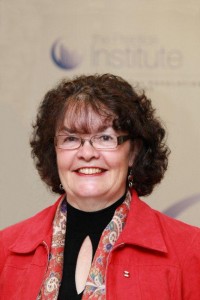We are very pleased to have Professor Susan McDaniel as our March guest blogger. Susan is Canada Research Chair (Tier 1) in Global Population & Life Course, Prentice Research Chair, Professor of Sociology, and the Director of the Prentice Institute in Global Population & Economy, at the University of Lethbridge in Canada. You can find her here. Please do not forget to leave your comments and feedback below. So, without further ado, here is Susan’s interesting contribution:
 Families 2012: Pressed and Stretched
Families 2012: Pressed and Stretched
Susan McDaniel
My research tends to be both longitudinal, i.e. life course focussed, and comparative. In this blog posting, I draw on both from my ongoing longitudinal, comparative research on family changes and challenges in various parts of the world.
The quotes are from real people interviewed about their challenges in today’s economically precarious environment.
“I feel like I am stretched and stretched, being pulled in a million directions…†notes a respondent in the U.S. who is facing challenges in a multi-generational family, each member of which is facing various economic difficulties, and the respondent is called upon to help them out.
“Unless I win the lottery, I can’t retire. My mortgage is for 40 years”, Midlife respondent in my Canada/US study, looking toward the older years in the Great Recession.
These two quotes are exemplary of many family members who feel pressed and stretched in 2012, particularly as they live in multi-generational families, whether or not they share the same household.
We talk a lot in family sociology and in public discourse about family choices increasing. I wonder… Do we say, shall I be a lone parent living on low income, an older divorced woman/man, in a lesbian/gay couple, wed or not, a widow/widower or a child of divorced parents? I tend to think not. Do we long for a multi-generation family that is both pressed and stretched in a world-wide recession where much of what we worked for and dreamt about may be threatened? I tend to think not.
Yet, we all carry with us family baggage, images and dreams of what families should be, and what our children should achieve that we did not or could not. We try to make good decisions but those decisions turn inside out as jobs decrease, debt increases (both personal and state), and mobility options reduce. Instead of dreams of a better future for our children, they live as adults increasingly with midlife and older parents, as ‘cellar-dwellers’ or ‘boomerangs’ whose parents’ lifestyles they emulate by being supported by the parents. Canadian economist, John Kenneth Galbraith, notes wryly that ideals about anything, maybe particularly about families and what they should be, change very, very slowly, if at all. “Faced with the choice between changing one’s mind and proving that there is no need to do so, almost everyone gets busy on the proof. “ We try to act as if our families are not pressed and stretched but managing. We cover over, cover up and huddle together to ‘make do.’
Long lenses can help in understanding families in 2012 that are increasingly pressed and stretched. Long lenses are of three types, the first being a life course lens. My comparative longitudinal research has several important findings when we look at families in generations with a life course lens. With linked lives in families, people carry generations and generational expectations with them to their interactions over time. As families are pressed and stretched, conflicts are likely to escalate, particularly when younger generations face economic challenges their elders never dreamt of. What affects us going into family transitions, which are built into family life, are events years earlier and events now. The intersection of biography and history matters ever more in families that are pressed and stretched. Lastly, we find that income inequalities in societies at crucial life stages and at family transition points matter significantly to opportunities, successes, and life trajectories overall.
The second way that long lenses matter is seeing families assembled or reassembled into generations, with long lenses built in. We see how long lenses help us to understand families and change over time in another of my current projects, looking at diverse families living on low income who are deeply stressed and pressed. We find that they make family for themselves. They rely on grandparents to help in all kinds of ways, even if those ‘grandparents’ are not blood relations at all. These families reach out across time to connect with other generations.
The third long lens approach comes from very new research on child development. From the Developing Child Project, Harvard University, five significant findings are worth noting: 1) Getting things right the first time is easier and more effective than trying to fix them later; 2) Early childhood matters because experiences early in life can have a lasting impact on later learning, behavior, and health throughout life; 3) Highly specialized interventions are needed as early as possible for children experiencing toxic stress; 4) 4. Early life experiences actually get under the skin and into the body, with lifelong effects on adult physical and mental health; and 5) All of society benefits from investments in early childhood programs.
These findings have already had an effect on policies and approaches of the American Academy of Pediatrics who recommend the “leveraging of science to inform the development of innovative strategies to reduce the precipitants of toxic stress in young children and to mitigate their negative effects on the course of development and health across the life span†(Published online January 1, 2012 PEDIATRICS Vol. 129 No. 1 January 2012, pp. e224-e231, from the American Academy of Pediatrics).
